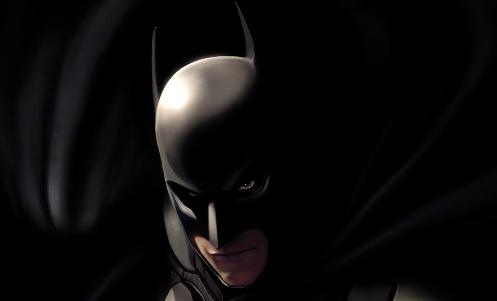 Image by Tsevis Visual Design
Image by Tsevis Visual Design
Steve Jobs sadly died yesterday after a long battle with cancer. As a tribute to the visionary inventor we're republishing a piece that ran in Issue 5, originally titled The Exodus of Steve Jobs. The article looks at how Jobs turned what seemed to be a massive blow to his career into a great opportunity and ends with an important rhetoric from Jobs himself that helps sum him up: "Don't settle".Laura O’Brien takes a look at how Steve Jobs lost his power at Apple in the eighties and finds out what he did to build himself back up again.Finding what you want to do for the rest of your life at 20 is lucky. Losing it all at 30 is devastating. This was Apple CEO Steve Jobs’ position in 1985. But what would appear to be a fatal blow to a career turned into great success and opportunity. Without this loss, would Apple, one of the most influential media giants in the world, be what it is today?
In 1981, the Apple corporation was under threat. While the Apple II computer was prosperous, it’s successor, the Apple III, had tanked. Worse still, industry giant IBM had plans to enter the computer market. They needed another winning machine and fast.
The board turned to the company’s cofounder and product inventor, Steve Jobs. After having developed Apple’s previous computers, they hoped he could create another success story for Apple. His newest project idea was Lisa, which used a graphical user interface (GUI) as opposed to a command-line interface. However, tensions were fraught in production, as the team felt that Jobs was a difficult manager to work with. When he was thrown off the project, he sought revenge by taking on another project within Apple known as the Macintosh. He aimed to design it as a cheaper GUI based machine in order to jeopardise Lisa’s sales. It was developed by an impressive team of engineers, invigorated by Jobs, who referred to them as “the pirates” and the rest of the Apple company as “the Navy.”
This rebellion reflected how Steve Jobs carried himself in the office. A former board member, Arthur Rock, recalled his lax office dress to a University of California oral-history project. “Jobs came into the office, as he does now, dressed in Levi’s, but at that time that wasn’t quite the thing to do [...] And I believe he had a goatee and a mustache and long hair--and he had just come back from six months in India with a guru, learning about life. I’m not sure, but it may have been a while since he had a bath.”
In spite of this antagonisation, John Sculley, then CEO of Apple who was hired by Jobs to run the company, heavily promoted the Macintosh. Lisa became a failure, and Apple needed this computer to be successful. Yet, while initial sales were promising, they soon fell. The pressure was mounting and Jobs’ attitude was grating. Sculley had no choice but to remove all managerial authority from him. He remained as a ‘chairman’, a mere ceremonial title.
Steve Jobs was at a loss. Apple had been his entire life and to remove his power was devastating. Yet he still had a passion for computing and began working on a new project known as NeXT, a machine designed for the higher education market. He enlisted the best engineers and sales people from Apple to help him start up this new business.
His employers attempted to sue them, only to see their tactic backfire, as it only bolstered the publicity of NeXT and portrayed Apple as being fearful of competitors. A settlement was quickly reached – NeXT were not allowed compete directly with Apple products and they were required to show the company their new merchandise before they released them to the press.
In the meantime, Jobs began to develop the company, using his unique business style. Their base was designed to be open, spacious and communicative. All employees worked in a common room area, decked out with leather couches and Ansel Adams prints.
Jobs wanted the NeXT machine to be the best it could be, with high quality hardware and the most advanced software. He based the operating system (OS), called NeXTSTEP, on UNIX, the most complex at the time, but added his own GUI for easier use. The product was known as the NeXT Cube and was released in October 1988. Costing $6,500 and reported to have been missing useful software, it did not sell. They attempted to expand its market from just educational purposes and released a cheaper model known as NeXT station, but there was no improvement. By 1993, all of its cofounders left. The company were forced to drop out of the hardware market and focus on niche software.
NeXT was not the only project Jobs undertook. In 1986, he bought the Graphics Group, which was a part of Lucasfilm’s computer graphics department. This team dreamed of making animated features using CGI on machine, initially developed for this purpose, such as the Pixar Image Computer. But with a price of $135,000, very few were sold. They shut down the hardware division, focusing on developing 3D language software called Renderman. It found some success, selling 100,000 licenses and was used by James Cameron for Terminator 2: Judgement Day. Their short animations Luxo Jr and Tin Toy, headed by John Lasseter, earned themselves Oscar nominations. Yet the company was still far from being profitable. All that was about to change.
Lasseter pitched to Disney the idea of developing a Christmas special for them. They were so impressed by their short animations, they asked them to produce three movies. This created a huge re-organisation of the company, devoting much of its resources to animation. The first feature planned was Toy Story. In spite of getting this landmark deal, the pressure was on to succeed. If Jobs funded another failure, he would have been forced to sell Pixar to someone else. Negotiations were tense, due to Jobs and Disney film division head Jeffrey Katzenberg’s fraught relationship. Only months before, Jobs had gotten into a blazing argument with Katzenberg when he tried to sell them some of his NeXT computers. Still, the negotiations went well and the deal was finalised.
The production was not without its problems. 10 months in, the entire film had to be rescripted, as Disney felt that the character of Woody was far too mean. This posed a huge threat to scheduling, but eventually the script was reworked and the film was released in November 1995, right in time for Chrstmas. Jobs was more focused on his NeXT company, but he noticed the hype that Toy Story was getting and saw the opportunity in Pixar once again.
Jobs made Pixar go public the week after the release of Toy Story. The film may have earned $39.1 million on its opening weekend, but Pixar were worth more on the stock market. And with that, Jobs net worth was over $1.5 billion – far greater than it ever was when he was in Apple. The company itself were facing difficulties, thanks to Microsoft’s release of the hugely successful Windows 95. They were losing marketshare and needed a new OS for their hardware. Apple’s newly appointed CEO, Gil Amelio, chose Jobs’ NeXTSTEP OS, paying $400 million for the company. This was used to develop their newer OS and contained many attributes that are still on Macs today, such as the Dock and the Finder browser window.
By 1997, Apple’s losses were huge, so Amelio was removed from the head position. Jobs stepped in as interim CEO and began restructuring the board of directors and entire company line. This lead to him becoming Apple’s full time CEO. Within six months, he released the Power Mac G3 and the Powerbook, which were not only great successes, but had helped the technological community restore its fate in the Apple brand. Not only had Steve Jobs returned to Apple, who had thrown him out years before, but he had regained power of the entire company.
While Steve Jobs initial reaction to his own ousting was despair, in hindsight, he has regarded it as the best thing that has happened to him. “Your work is going to fill a large part of your life, and the only way to be truly satisfied is to do what you believe is great work.” he said at a Commencement address in 2005, “And the only way to do great work is to love what you do. If you haven’t found it yet, keep looking. Don’t settle.”











